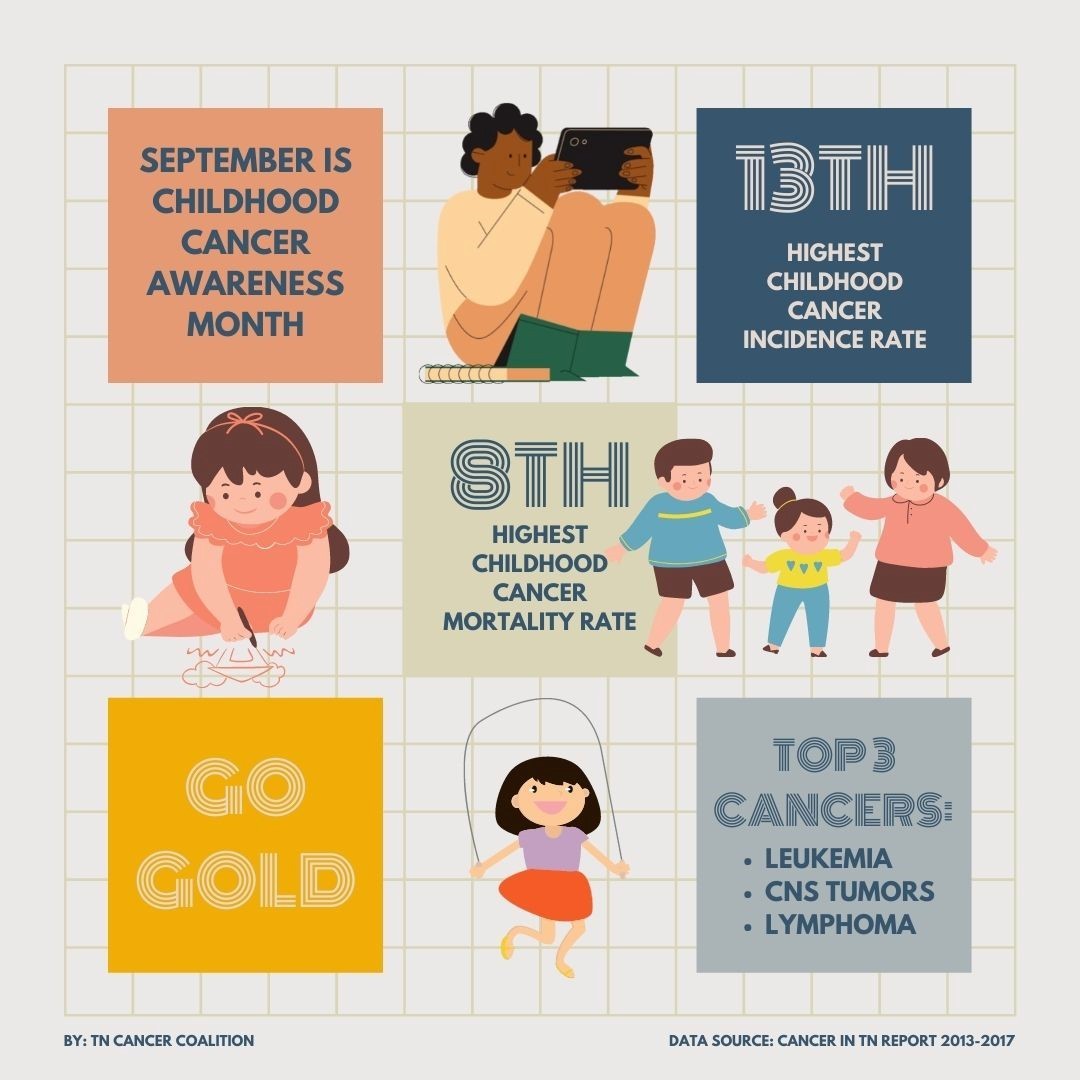Hearing and dealing with a childhood cancer diagnosis can be one of the most devastating and scary experiences for a family. According to the American Cancer Society, about 10,500 children in the United States under 15-years-old will be diagnosed with cancer in 2021. Additional research shows that 84 percent of children with cancer today will survive five years or more. Higher survival rates are due in large part to advances in pediatric oncology. Pediatric oncology is the research and treatment of cancers in infants, children, young adults, and teenagers. Childhood cancers often develop because of DNA changes in cells early in life and even before birth while adult cancers are often linked to lifestyle or environmental risk factors.
On a national and state level, both President Joseph R. Biden Jr. and Governor Bill Lee have proclaimed September 2021 as Childhood Cancer Awareness Month to help raise awareness. In Nashville, the Koreans Veterans Memorial Bridge and the Tennessee State Capital were lit in gold in honor of the fighters, survivors, and children lost to cancer.
Here are several facts about childhood cancers:
· Cancer is the leading cause of death by disease among U.S. children 1-14 years of age.
· Approximately 1,190 children under the age of 15 are expected to die from cancer in 2021. That is nearly 48 middle school classrooms of children.
· The top three types of childhood cancers diagnosed in Tennessee include: leukemia (blood), central nervous system (brain and spinal cord tumors), and lymphoma (lymphatic system).
· There are no widely recommended screening tests to look for cancer in children.
· Cancers in children can be hard to recognize because early symptoms are often similar to symptoms caused by common illnesses or injuries. Cancer in children is not common but it’s important to visit a doctor if they have signs or symptoms that don’t go away such as:
o An unusual lump or swelling
o Unexplained paleness and loss of energy
o Easy bruising or bleeding
o An ongoing pain in one area of the body
o Limping
o Unexplained fever or illness that doesn’t go away
o Frequent headaches, often with vomiting
o Sudden eye or vision changes
o Sudden unexplained weight loss
There is hope! Experts in childhood cancer and research are making advances for children and families at children’s hospitals, university medical centers, and cancer centers across Tennessee. There are six hospitals in Tennessee that treat children for cancer. Two hospitals are National Cancer Institute designated comprehensive cancer centers including Vanderbilt-Ingram Cancer Center (Monroe Carell Jr. Children’s Hospital at Vanderbilt) and St. Jude Children’s Research Hospital. The others are East Tennessee Children’s Hospital, Children’s Hospital at Erlanger, The Children’s Hospital at TriStar Centennial, and Niswonger Children’s Hospital.
Tennessee Cancer Coalition (TC2):
The TC2 is a statewide group of volunteers working to reduce the burden and impact of cancer on Tennesseans. Volunteers include health care professionals, researchers, social support organizations, patient advocacy groups, survivors, government employees, faith-based organizations, and more. The TC2 members work together to develop and implement the State of Tennessee Cancer Plan, which includes a blueprint of strategies to address childhood cancer.
Links:
American Cancer Society – Cancer in Children
A Proclamation on National Childhood Cancer Awareness Month, 2021
State of Tennessee Proclamation by the Governor – Childhood Cancer Awareness Month

Are you interested becoming a member of TC2? Would you like to participate in writing the next State of Tennessee Cancer Plan? Please email thetennesseecancercoalition@gmail.com for more information.